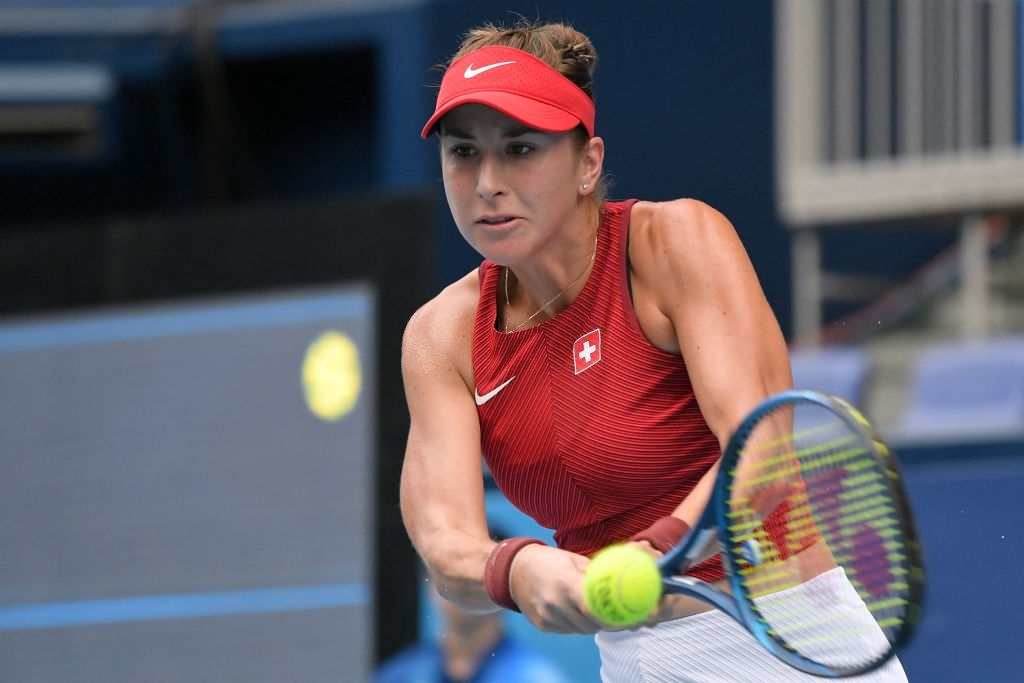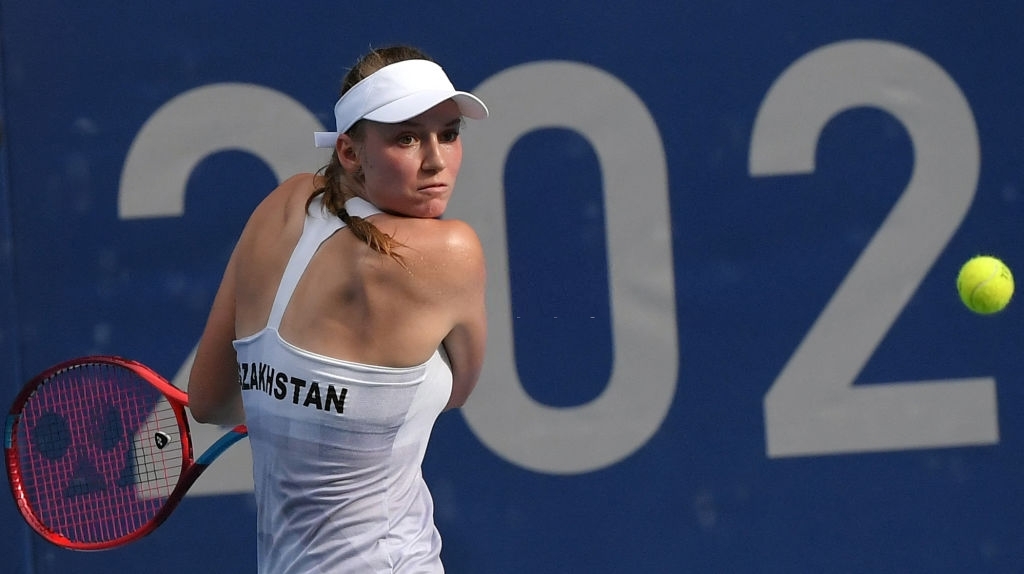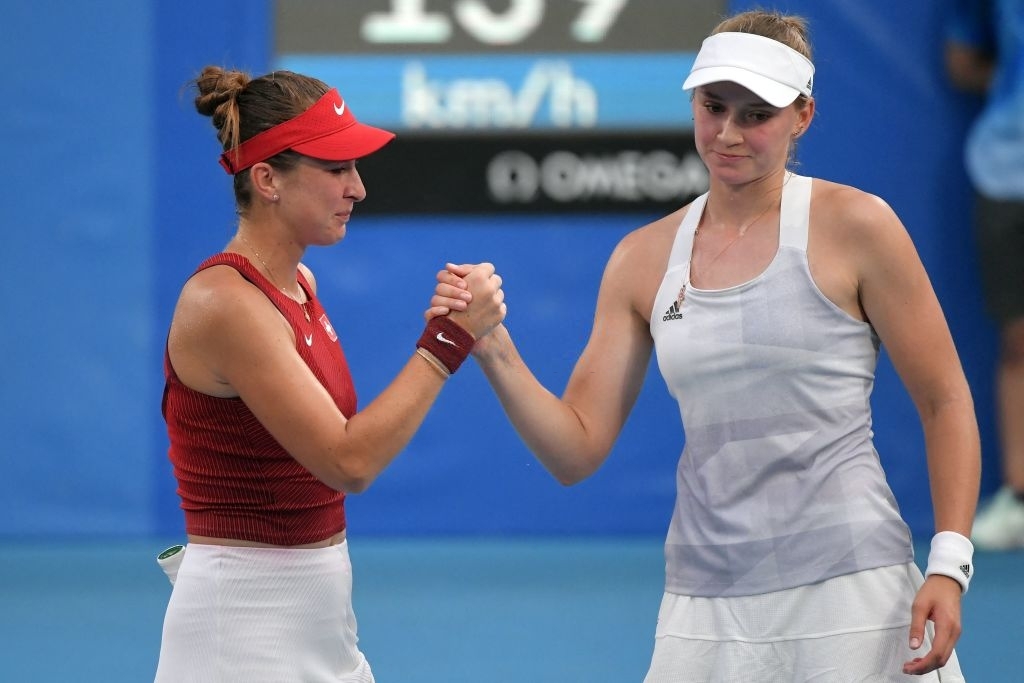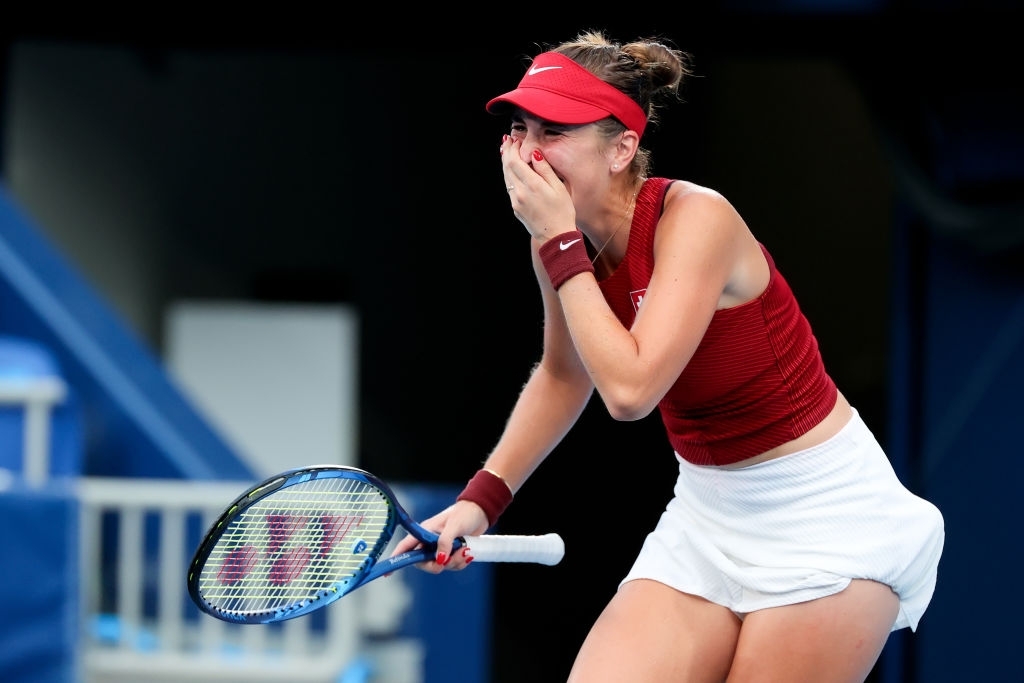Since Marc Rosset’s gold-medal victory at the Barcelona Olympics 19 years ago, Switzerland was made to wait another two decades for its second Olympic medal in singles.
The Confederation’s eager and long wait ended in 2012 when now-20-time men’s Grand Slam singles champion Roger Federer settled for silver at the London Games.
Their compatriot, Belinda Bencic, former world number four and ninth seed at the Tokyo Games this week, entered another uncharted territory for her country when she beat Kazakh Elena Rybakina in the last four.
Bencic, who had become the second Swiss woman to reach an Olympic quarterfinal this week, and then its first such semifinalist, now ensures Switzerland its third Olympic medal in singles by virtue of that win.
Bencic outlasts Rybakina in opening-set
Today marked the first day of the entire competition where matches began later in the day, owing to a change in schedule by organisers owing to the sweltering conditions of the Tokyo summer, “in the best interests of player health and welfare”.
The first match of the day on Centre Court at the Ariake Tennis Park, it saw the Swiss-Kazakh pair open with two service holds.

It was in the third game where the pendulum began swinging as the older and higher-ranked Bencic recorded the first service break of the match.
The next game would be the first (of 13 overall) to stretch to deuce as 22-year-old Rybakina denied Bencic’s two game points before converting her second break point.
The Kazakh was soon up 5-2 courtesy of a three-game winning streak, and, for a moment, it looked like the world number 20 has the set in the bag.
From here, Flawil-born Bencic recorded a comeback of her own as she reeled in the next three games to equalise the set at five games apiece.
After a hold of serve for 6-5, Rybakina once again landed chances to seal the set, racking up four set points but neither went her way as the set proceeded to a tiebreak.
Bencic’s firm momentum from 2-5 down earlier would sustain the Swiss in the end as she ran away with the tiebreaker, where she surrendered just two points.
Rybakina comeback hands Kazakh second set
The second set began the way the first concluded, with 12th-ranked Bencic continuing her momentum, by going up a break.
The Swiss’ lead was short lived, however, and, after three routine holds of serve, she soon found herself trailing after her Kazakh opponent broke to 15 in the seventh game to lead 4-3.
Rybakina was sure to avoid repeating a similar lapse in the prior set as she held on to her lead, eventually serving out the set 6-4 to send the match to a one-set shootout.

Second Bencic comeback seals her gold-medal match berth
In a starking similarity to the previous set, the first two games of the decider were won by the same player, this time in Rybakina.
It would come as no surprise when the Kazakh, in a similar fate to her opponent in the previous set soon saw her lead dissapear when Bencic broke back in the fourth game.
The score now at 2-2, the duo would trade a pair of breaks next, both games going to deuce but the latter of those looked to be a the final turning point, for Bencic.
The Swiss never looked back after as she went on to nine of the next 13 points to seal the win, converting the 26th and final break point of the match – on the Rybakina serve in the penultimate game, in the process.
The more powerful Moscow native Rybakina conjured 14 aces to Bencic’s mere five, the latter also outnumbering the former in the double fault count too, 12 to seven.
Rybakina’s lethal first serves paid dividends as the Kazakh won 40 of 58 points on her first serve, a much better record than Bencic’s 62% (47 of 76).
The big game of Rybakina, however, saw the risks prevail as she outnumbered Bencic in the unforced error department by six (40 to 34) to go along with a higher winner count (24 to 18).
On the second delivery, Bencic also appeared to be the better player as the Swiss won 23 of 39 (59%) of points behind it, which outperformed her younger opponent’s 14 of 34 (41%).
A more outstanding key would be in break points where Bencic successfully took six of 10 such opportunities whilst Rybakina, who did manage to convert a similar tally, had six more such chances on her racket.
The close encounter, which lasted two hours and 44 minutes, also showed in the total number of points won by each woman where a total 226 points were contested, and Bencic having four more to her name than Rybakina (115 to 111).

Bencic, who was taking on her third Slavic opponent in succession in Rybakina, besides completing her third three-setter in a row, was much elated after the match: “My emotions right now... it's too high. To have a medal, it's the greatest thing. Even to be here as an athlete, in the Olympics, it's amazing!”
The Swiss spoke more: “To have a medal, it's something I dreamed of, and I didn't think it would become reality. I'm beyond relieved and happy.”
Up next
The all-Slavic line-up of the last four saw unseeded Marketa Vondrousova and highest-ranked player surviving Elina Svitolina of Ukraine go head-to-head in the one other semifinal, later in the day.
There, surprise package Vondrousova recorded her second top-10 scalp of this Olympiad as the Czech southpaw dropped four games to nullify fourth seed Svitolina’s hopes of a berth in an Olympic final, needing just 64 minutes to do so.
The gold medal match will see Vondrousova and Bencic contest the third all-debutante Olympic final in women’s singles in the Open Era, after Sydney 2000 and Seoul 1988 – the latter event marking the return of tennis to the Games in the Open Era.
Thus, Rybakina and Svitolina will contest the bronze medal match in a clash featuring competitors representing countries which were former SSRs.









































